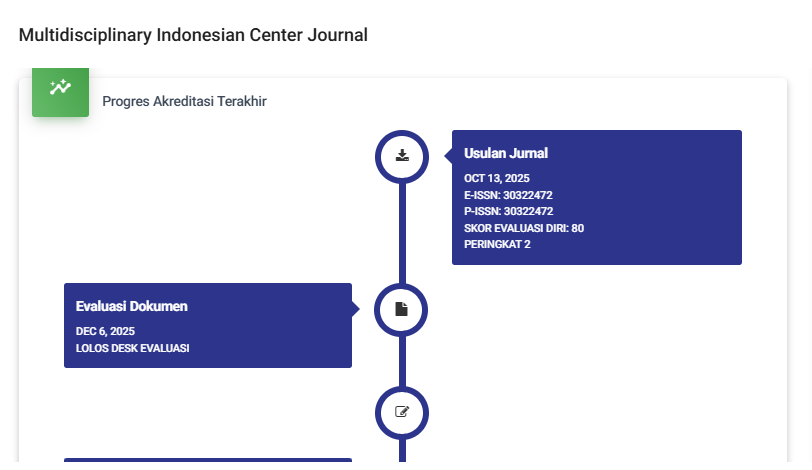EMOTION REGULATION STRATEGIES IN HADITH PERSPECTIVE AND THEIR RELEVANCE TO CONTEMPORARY PSYCHOLOGY
DOI:
https://doi.org/10.62567/micjo.v2i3.790Keywords:
Emotion Regulation Strategies, Hadith, cotemporary psychologyAbstract
This study aims to examine emotion regulation strategies from the perspective of Hadith and their relevance to contemporary psychology. The main focus of this research is on three Hadiths that provide guidance on managing emotions, particularly anger: Hadith Abu Dawud no. 4150 on reciting ta'awudz when angry, Hadith Abu Dawud no. 4151 on changing body posture when angry, and Hadith Isnad Shahih no. 9630 on the prohibition of anger. These three Hadiths teach techniques that can help individuals manage their emotions effectively, such as seeking protection from Allah, changing physical conditions to relieve tension, and restraining from anger. From the perspective of contemporary psychology, these strategies resemble emotion regulation approaches found in theories such as cognitive reappraisal and emotion regulation strategies, which aim to change perception or physiological responses to negative emotions. This research also reveals how teachings in the Hadith can be used as a foundation to understand emotion regulation more holistically, integrating both spiritual and psychological dimensions. Through this understanding, the study highlights the importance of integrating Islamic teachings with contemporary psychological principles to create a more comprehensive approach to managing human emotions, particularly anger, in the modern world.
Downloads
References
al-Albani, M. N. (2012). Ringkasan Shahih Muslim. In I. Muslim, Shahih Muslim, hadis no.2609 (p. 389). Jakarta: Gema Insani.
al-Ghazali, A. H. (2005). Ihya' Ulum Al-Din. Kairo: Dar al-Ma'rifah.
Daradjat, Z. (2005). Ilmu Jiwa Agama. Jakarta: Bulan Bintang.
Desmita. (2009). Dalam Psikologi Perkembangan Peserta Didik (hal. 157). Bandung: Remaja Rosdakarya.
Goleman, D. (1995). Emotional Intelligence. New York: Bantam Books.
Gross, J. J. (1998). The Emerging Field of Emotion Regulation: An Integrative Review. Review of General Psychology.
Huda, N. (2021). Remaja dan Kesehatan Mental dalam Islam. Yogyakarta: Deepublish.
Kolk, B. v. (2014). The Body Keeps The Score. New York: Penguin.
Koswara, E. (2011). Kesehatan Mental dan Psikologi Islam. Bandung: Pustaka Setia.
Nawawi, I. (1996). Riyadh al-Shalihin. Beirut: Dar al-Fikr.
Rahmat, J. (2012). Psikologi Agama. Bandung: Mizan.
Shihab, M. Q. (2007). Wawasan Al-Quran: Tafsir Maudhu'i atas Pelbagai Persoalan Umat . Jakarta: Mizan.
Supriatna, A. (2020). Psikologi Media Sosial: Dampak dan Solusinya dalam Perspektif Islam. Bandung: Remaja Rosdakarya.
Ubaidillah. (2016). Psikoterapi Islam: Integrasi Psikologi dan Spiritualitas. Jakarta: Kencana.
Widiantoro, R. A. (2024). Strategi Regulasi Emosi Pada Perawat Jiwa di Rumah Sakit Khusus Daerah Dadi Provinsi Sulawesi Selatan. Jurnal Penelitian Pendidikan, Psikologi, dan Kesehatan, 5 (3), 1127.
Widiyanti, D. (2024). Expressive Supression dan Dampaknya terhadap Kesehatan Mental Mahasiswa. Jurnal Psikologi Islami, 12 (1), 44-58.
Yunus, M. (2009). Hadis-Hadis Shahih Bukhari Muslim. In I. al-Bukhari, Shahih al-Bukhari (p. 245). Jakarta: Hidakarya Agung.
Downloads
Published
How to Cite
Issue
Section
License
Copyright (c) 2025 Eriska Razilhija, Romlah Abubakar Askar, Abdul Ghofur

This work is licensed under a Creative Commons Attribution-ShareAlike 4.0 International License.



























